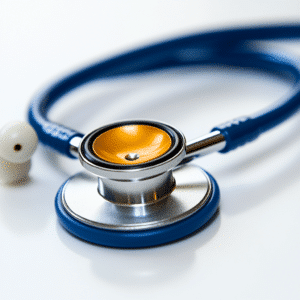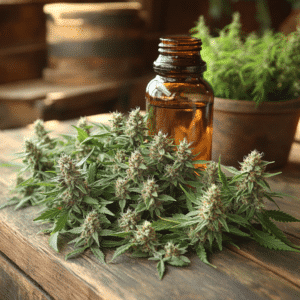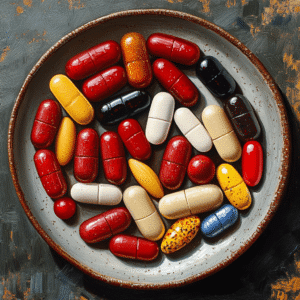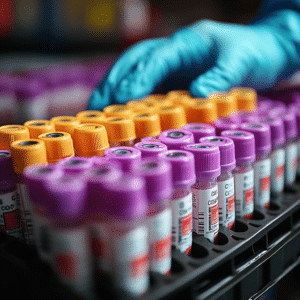Understanding teratogenic effects on pregnancy is vital for anyone involved in maternal health. Teratogenic risks refer to the potential harmful impacts that certain substances, known as teratogens, can have on a developing fetus during pregnancy. You might wonder why this matters. Well, the consequences can be serious, leading to congenital disabilities, developmental delays, miscarriages, and stillbirths. Various factors define teratogens, including medications, environmental exposures, infections, and lifestyle choices.
Parents grappling with a child’s addiction may find it particularly hard to accept these challenges. Nonetheless, taking proactive steps and educating ourselves about these teratogenic risks can help foster healthier family dynamics and guide future generations. The focus of this article is not just to inform but also to empower. By arming ourselves with knowledge, we become better advocates for the health and well-being of both mothers and children.

Top 7 Teratogens and Their Impact on Pregnancy Outcomes
Understanding specific teratogens can unveil hidden risks during pregnancy. Here are seven notable teratogens that can significantly influence pregnancy, along with real-world implications and case studies illustrating their effects.
1. Alcohol: A Multifaceted Teratogen
Alcohol consumption during pregnancy poses significant risks, which can lead to Fetal Alcohol Spectrum Disorders (FASD). These disorders result in physical and cognitive impairments that can last a lifetime. A prominent figure, actress and producer Rebecca Romijn, made headlines by sharing her choice to abstain from alcohol while pregnant after learning about its potential teratogenic effects. According to the CDC, there’s no safe amount of alcohol during pregnancy. Even moderate drinking can have lifelong consequences for a child, a reality that’s critical for all expectant parents to acknowledge.
2. Certain Medications: The Case of Isotretinoin (Accutane)
Isotretinoin is a medication frequently prescribed for severe acne, and it stands firmly in the teratogenic camp. Research shows it can lead to major fetal abnormalities like heart defects and central nervous system issues. A heart-wrenching case highlighted a young woman who, after taking isotretinoin, gave birth to a baby with serious congenital heart defects. Such stories underscore the need for better guidelines and education on this medication, ultimately helping women make informed choices about their health during pregnancy.
3. Environmental Pollutants: Mercury Exposure
Mercury is a potent teratogen often found in certain fish such as shark and swordfish. Research by the CDC reveals mercury exposure during pregnancy can jeopardize a baby’s brain development, leading to cognitive deficits. A study from the early 2000s highlighted alarming correlations between mercury levels in pregnant women and less-than-ideal cognitive outcomes for their children. This shocking revelation illustrates the importance of dietary choices; expectant mothers must navigate their seafood consumption wisely to protect their unborn child.
4. Infections: The Risk of Toxoplasmosis
Toxoplasmosis is particularly insidious, owing to its prevalent presence in everyday life. This parasitic infection can lurk in cat feces and undercooked meat, posing serious risks to pregnant women. In France, a mother unwittingly contracted toxoplasmosis through gardening, leading to her child facing significant health challenges. By raising awareness about preventive measures, communities can better prepare themselves, especially in areas with a high prevalence of stray cats or where undercooked meat consumption is common.
5. Nonsteroidal Anti-Inflammatory Drugs (NSAIDs)
Many people use common NSAIDs like ibuprofen and naproxen, but they’re not without risks, especially during the third trimester of pregnancy. Research has linked their use to adverse effects such as preterm birth and prolonged labor. A cohort study published in 2022 found that pregnant women who regularly consumed NSAIDs exhibited higher rates of complications. Healthcare providers now advocate for alternative pain management strategies, thus safeguarding the health of expectant mothers and their babies.
6. Cigarettes and Nicotine: The Dangers of Smoking
The teratogenic effects of tobacco are widely recognized and well-documented. Cigarette smoking during pregnancy has been shown to increase the risk of low birth weight, preterm delivery, and developmental challenges. Legends like the late Princess Diana shared their personal struggles to quit smoking while pregnant, significantly raising awareness. Their stories inspire mothers to explore cessation programs aimed at improving pregnancy outcomes and fostering healthier futures for their children.
7. Recreational Drugs: The Impact of Cocaine
Cocaine remains a notorious teratogen, linked to numerous adverse effects during pregnancy. Children born to mothers who used cocaine may face issues like low birth weight, withdrawal symptoms, and developmental impairments. Medical journals recount the long-term effects on these children, emphasizing the dire need for targeted intervention programs. Raising awareness about substance abuse is essential for safeguarding maternal and child health, particularly for those still navigating addiction themselves.

Navigating Teratogenic Risks for Healthier Outcomes
Understanding teratogenic risks is essential for promoting healthier pregnancy outcomes for both mothers and children. Public health campaigns focused on education, prevention, and accessible resources can significantly impact expectant mothers. Healthcare providers play a critical role in counseling pregnant women, ensuring they’re armed with knowledge needed to make informed choices about their lifestyle and health risks.
Furthermore, engaging families in the conversation around substance abuse offers a chance to break cycles of addiction that can affect generations. Organizations like Mothers Against addiction—committed to assisting parents affected by a child’s addiction—play a key role in advocating for healthier communities. By reducing exposure to known teratogens, we push toward a future where fewer children face the trials caused by teratogenic substances.
Importantly, as we progress in awareness and education, we create an environment where children are given the healthiest start possible. Let’s aim for conversations that echo the sentiments of resilience seen in advocates like Elizabeth Vargas, as we gear up to support families facing the challenges posed by addiction and ensure brighter futures for the next generation. Together, we have the opportunity to foster change, champion health, and promote well-being across our communities.
Understanding Teratogenic Risks in Pregnancy Outcomes
What’s in a Name? The Teratogenic Factor
When we hear the term ‘teratogenic,’ it conjures up thoughts of various factors that can impact fetal development during pregnancy. Did you know that around 3-5% of congenital disabilities stem from teratogenic exposures? It’s a statistic that makes you think twice about the substances pregnant women come into contact with daily. For instance, just like a star-studded cast of a film, such as the cast Of Under The Banner Of Heaven, every pregnancy is influenced by many actors—alcohol, certain medications, and environmental toxins can take center stage as teratogenic agents during those critical months.
Now, speaking of taking the stage, what about the conditions we’re often unaware of that can also pose risks? Take the context of jails like the Miami Valley Jails, which house individuals struggling with various issues—including addiction. These environments can often be left unchecked regarding maternal health, raising questions about the potential teratogenic impacts of stress and substance abuse on pregnant women.
Trivia Time: Fun Facts About Teratogens
Here’s a fun nugget: not all teratogens are as predictable as a baseball game. Similar to checking out the Milwaukee Brewers Vs Minnesota twins match player Stats, the impact of teratogenic substances can vary greatly depending on timing, quantity, and individual circumstances. For example, exposure to certain medications during specific trimesters can vastly alter outcomes. This unpredictability stresses the critical nature of prenatal care—knowledge is power, after all!
Did you know that some household items can be surprisingly problematic during pregnancy? Some stainless steel cleaner contain chemicals that might be teratogens, especially if inhaled in large amounts. It goes to show that even while spring cleaning, pregnant mothers need to be extra cautious. So, always read labels and opt for natural alternatives when possible!
Connecting the Dots: Insights and Actions
In a world bustling with information, it’s also vital to be aware of resources that can assist parents in making informed choices. For example, assessments like the Cssrs help track risks for individuals with a history of substance use. Applications such as Quizlrt offer questionnaires and resources for pregnant women to gauge their exposure to potential teratogens, empowering them to take proactive steps.
Meanwhile, the excitement of new life often parallels a broader interest in all things baby-related, and many parents find joy in news about furry little ones. Keep an eye on Animal Baby news for adorable tidbits that may lighten your day—a welcome distraction as one navigates the pressures of teratogenic risks during pregnancy. Remember, knowledge can help sidestep potential issues, ensuring a brighter future for both mother and child.





























